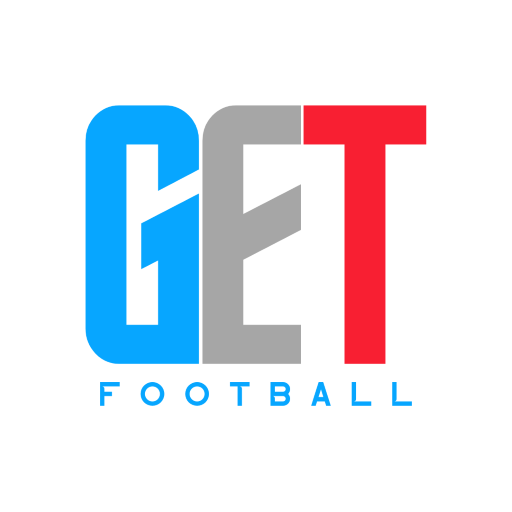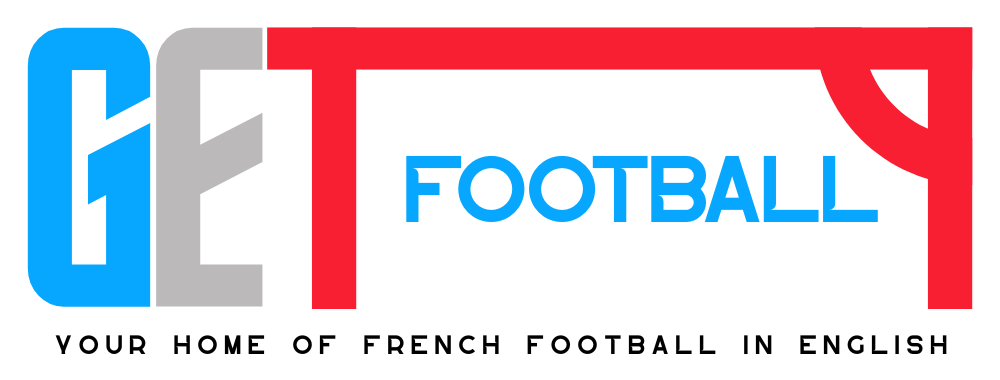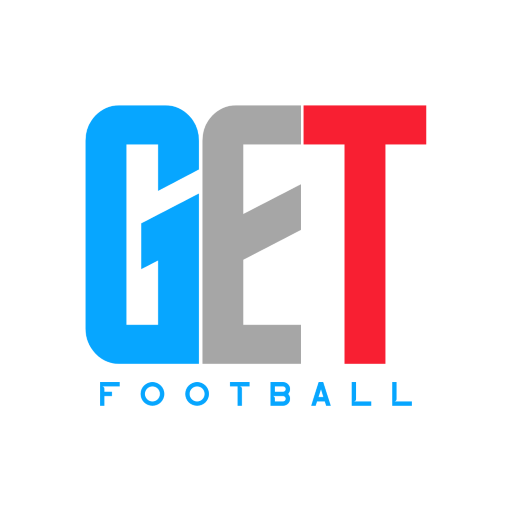When Belgian side Cercle Brugge were adopted into the AS Monaco “family” back in 2017, the club were mired in a relegation battle in the second division. On Saturday, they play Standard Liège in the European playoffs, and the intensification of the synergies between Monaco and Cercle, both owned by Dmitry Rybolovlev, certainly plays a part in the Belgian club’s recent success.
“I think this is quite a unique synergy and quite a unique project. I think nowadays we can hear and see a lot of new multi-club groups, but I think we’re one of the few that can say that we have a clear synergy and strategy from Cercle Brugge to AS Monaco, and vice versa,” Cercle Brugge Sporting Director Carlos Aviña tells Get French Football News’ Luke Entwistle.
Those “synergies” have allowed the exchange of knowledge and expertise, but also of players between the two clubs. It’s not a one-way street. Whilst many players make the move from Monaco to Cercle, either on loan or permanently, players such as Thomas Didillon have made the opposite move, as the club looks to optimise its assets to extract elite performance at both clubs.
Players such as Boris Popović, who joined Cercle from Monaco on a permanent deal back in the summer of 2021, have become key figures for a Cercle team that is on the rise. The goal that earned Cercle promotion back to the top flight was incidentally scored by a Monaco loanee at the time, Irvin Cardona, and many years later, after having consolidated their first division status, the youngest team in the league are now pushing towards Europe.
Aviña spoke to Get French Football News about their “unique” multi-club model, and how the “synergies” have been a motor for Cercle’s success.
A lot is said about the synergies at the club, but how does this manifest itself in the day-to-day?
I think this is quite a unique synergy and quite a unique project. I think nowadays we can hear and see a lot of new multi-club groups, but I think we’re one of the few that can say that we have a clear synergy and strategy from Cercle Brugge to AS Monaco, and vice versa. It goes both ways. It’s about exchanging information, it’s about supporting each other and in the end it’s about working on the same wavelength. There is a strong strategy that goes both ways, which is about developing talent, working with young players, a clear philosophy and playing style as well and I think the way we coach, the way we develop talent, the way we analyse our rivals, the way that we work with our performance and medical department, is the same at both clubs. The aim of the project is to work as one team, and that’s what we’ve been doing for a while now. That’s a big part of the recent successes of the team.
Has there been an intensification of the synergies between the clubs?
Yes, I think it has increased in the last three years. I think one of the main goals that Paul (Mitchell) and I had when we arrived three years ago was to intensify and increase the collaboration between both clubs and now I think we can say anyone from Cercle or from Monaco can reach out to their counterparts at the other club and exchange information and ask for support in decision making. That’s very valuable. Also, there is a strong collaboration in terms of developing players. It goes both ways. From Cercle Brugge we have Thomas Didillon, then Jesper (Daland) going to train at the Monaco training camp. Here we have Radoslaw Majecki and Boris Popović, two strong players here at Cercle Brugge right now, and playing basically every minute.
How does recruitment work at Cercle? Are Monaco considered in the process?
We always try to see the bigger picture and it’s part of a holistic process. We have quite an extensive scouting network and this network can only be possible when it is part of a family like AS Monaco. We have scouts basically everywhere in the world, and they report to AS Monaco and to Cercle Brugge. They’re always feeding us with potential options, and we can do the work internally to see if they really fit. It is always with a view that they potentially, or at least that they have the potential and talent to one day be playing for Monaco, or at least in the big five (divisions). That’s how we recruit. We also use a lot of data, but we’re not data-driven or data-led; we’re data-informed. It is part of the process. That’s how we have found players like Ayase Ueda, for example.
How important and frequent are the discussions with Paul Mitchell and other members of the backroom staff at Monaco?
I call Paul every single day, several times. There are no days off in this industry! Our communication is as strong as if we were in the office next door. With James (Bunce), it is more punctual on different topics, but it’s super open and super collaborative. Open communication is one of the reasons for success.
Do you sense that there is a hierarchical relationship between the clubs?
There is a clear ambition. Anyone who is recruited to come to Cercle, be it a player or a member of staff, always has the ambition to go to Monaco one day, having come in and succeeded at Cercle. It is an aspirational relationship. Monaco is one of the biggest landmarks in European football. That’s the way we’re seeing it from Cercle’s perspective: we have the support of such a big club, let’s use it to our advantage, let’s create competitive advantages that can lead us to win games on the pitch. From an individual perspective, everyone is always pushing to give their best, and why not? One day you’ll [maybe] be part of Monaco. There are lots of players, like Daland who trained at Monaco’s winter camp, and that can really help nurture the talent in our team.
You mention ambition to make the step from Cercle to Monaco. Do you also have that ambition with Paul’s impending departure?
Paul has been a massive, massive, massive contributor to the success at Cercle Brugge. I don’t think people realise how important his role has been in terms of supporting the club. I think one of the main things he has made sure of is that there is always continuity and a strong project that stands regardless of the personnel, be that players, coaches, or management. We’re in such a strong position from a group perspective that there will always be continuity. From my personal perspective, honestly, I was saying to the players on Sunday, ‘Today guys is when we can go from a good season to a great season.’ And what I was telling them this morning was, ‘Now is the moment to go from a great season to a historic season.’ To be honest, there is nothing else on my mind apart from the match against Standard Liège. We want to get six from six and get as high as we can go. That’s where we are at the moment.
Would a European qualification change the relationship between Cercle and Monaco?
I don’t think it will change the dynamic. It’s certainly an opportunity to showcase our talent on a bigger platform. It’s still too premature to contemplate how this will look. The aim needs to be to continue with our good performances and earn good results game-to-game, and then we will see how the details of the collaboration will look. We see this as an opportunity and big motivation. We’re going for it. When you look at the players and the results and performances this season, it’s super balanced. Anything can happen. There is only a difference of three points and it’s going to be exciting.
I’m sure you saw Aleksander Ceferin’s comments about same-ownership clubs being able to compete in European competitions. I assume that news was positively received at the club?
For sure, this isn’t anything new, and we need to take into account that Cercle Brugge is a team that has been acquired by AS Monaco in 2017, so it’s been six years. We remember where we came from. We were a club that was struggling in the second division, that then got promoted and then a couple of transitional years that were more about survival. In recent years, the new strategy has been trying to revamp the team, and that’s going really well. I think we need to go step-by-step. I’ve heard UEFA’s comments, and this is something we have always been aware of from a management perspective in the whole group regarding these restrictions. We’ll find an adequate solution when this occurs.
L’Équipe have described Cercle as an “antechamber” for AS Monaco. Do you agree with this categorisation, and could this change in the future?
I think it depends. We have had players like Harrison (Marcelin), Radoslaw (Majecki), and (Strahinja) Pavlović in the past that came here and made a massive impact at Cercle Brugge and went back to Monaco, or will go back to Monaco. It depends on the project that we have with these players. Every single player in the organisation has their own individual development plan. Some of their plans will be to go from the Monaco second team, come to Cercle and return to Monaco, or be sold to a big five club. Current examples are players like Boris Popović or Edgaras Utkus, who are still with us and are a big part of our team. Popović is a main component of the team. He’s very important. In the end, we will see if he’s probably one that is ready to go back to Monaco or make the next step to another league. He is definitely already enjoying some success and garnering interest from other teams.
That’s one project, and the other is players like Harrison, like Radoslaw, that will come to Cercle for strategic reasons to get playing time, to develop and go back to Monaco. Then the final one is external recruitment, where players will come to Cercle Brugge with the aspiration of going to Monaco, like Jesper Daland, like Ayase Ueda. If they come here and perform well, they will always have the chance to go there. I would say there are three different strategies that we can use, and depending on the moment in time, we will see exactly which one we will use.
Are Daland and Ueda now maybe ready to make the step across to Monaco?
I think it’s good that we can be speaking about this because it means that their time at Cercle has been successful. If they’re ready, or not, that’s something that we need to define in the next couple of weeks. Definitely, they’re making a big, big statement with the way that they’re playing in the league. Jesper is proving to be one of the best centre-backs in the league, Ayase being two goals off the top-scorer in his first season in European football is amazing. These kinds of talents are going to be, or are already, a success story for us. They’re definitely ready to make the next step and the market, and AS Monaco’s necessities are going to define if they go there or somewhere else.
GFFN | Luke Entwistle










